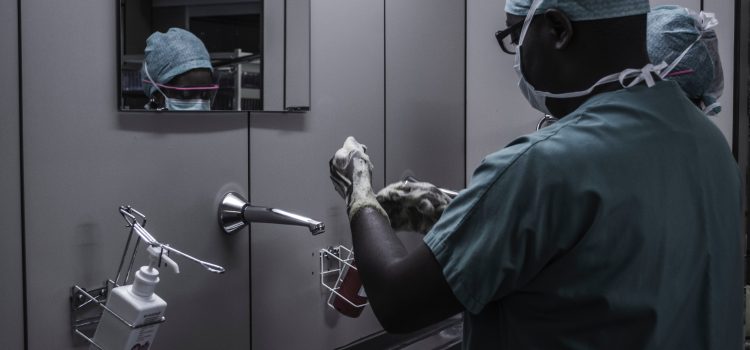
Are you tired of feeling sick, tired or rundown? Have you been considering seeking treatment to improve your overall health and wellbeing, but are unsure where to start? Look no further! In this blog post, we have compiled a list of the top five things that you must consider when getting treatment. Whether it is for physical or mental health concerns, these tips will help ensure that you receive the best care possible and come out feeling like a brand new person. So buckle up and get ready to take control of your health journey!
The Cost of Treatment
According to the National Institute on Drug Abuse, the cost of treating substance use disorders in the United States is estimated to be $193 billion annually. This includes the cost of health care, criminal justice, and lost productivity.
If you or a loved one is struggling with a substance use disorder, it’s important to consider the cost of treatment when making the decision to seek help. Treatment can be expensive, but the cost of not getting help can be even higher.
The cost of treatment varies depending on the type of treatment and how long it lasts. Inpatient treatment, which requires you to stay at a facility for a period of time, typically costs more than outpatient treatment, which allows you to live at home while attending therapy sessions and meetings.
The length of treatment also affects the cost. A shorter program may be less expensive than a longer program, but it may not provide all the necessary tools for recovery. It’s important to find a treatment plan that meets your needs and fits your budget.
There are many ways to pay for treatment, including insurance, grants, and scholarships. If you’re worried about the cost of treatment, talk to your doctor or a treatment center about payment options. Don’t let finances stand in the way of getting the help you need.
The Type of Treatment
When you are seeking treatment for your mental health, it is important to consider what type of treatment would be most helpful for you. There are many different types of mental health treatments available, and the type of treatment that is right for you will depend on your specific needs. Some common types of mental health treatments include psychotherapy, medication, and hospitalization.
Psychotherapy is a type of talk therapy that can help you address your mental health concerns. During psychotherapy, you will meet with a therapist on a regular basis to discuss your thoughts, feelings, and behaviors. Psychotherapy can help you learn how to cope with your mental health symptoms and improve your overall well-being.
Medication can be an effective treatment for mental illness. Medication can help reduce symptoms of mental illness and improve your ability to function in daily life. If you are considering medication as a treatment option, it is important to work with a psychiatrist to find the right medication for you.
Hospitalization may be necessary if you are experiencing severe mental health symptoms that put you at risk for harming yourself or others. During hospitalization, you will receive 24-hour care from medical staff. Hospitalization can provide a safe environment for you to stabilized and receive the intensive treatment that you need.
The Location of Treatment
The first thing you need to consider when getting treatment is the location of the treatment center. You want to make sure that the treatment center is located in a safe and convenient area for you. If the treatment center is too far away, it may be difficult for you to get there for appointments. If the treatment center is in a dangerous area, it could put your safety at risk.
The Duration of Treatment
The duration of treatment is an important factor to consider when getting treatment. The length of time you need to be in treatment depends on many factors, including the severity of your symptoms, how well you respond to treatment, and whether you have any complicating factors. Treatment for mental health conditions can last for a few weeks, months, or even years. It’s important to work with your treatment team to create a plan that meets your needs and helps you reach your goals.
The Success Rate of Treatment
The success rate of treatment for any given individual depends on a number of factors, including the severity of the condition being treated, the individual’s response to treatment, and the experience and expertise of the treating practitioner. In general, however, the success rates of treatment for mental disorders are quite encouraging.
According to the National Institute of Mental Health, the majority of people with mental disorders can be helped with treatment. For example, 70-80% of people with major depression respond positively to treatment with medication and/or psychotherapy. And while there is no cure for schizophrenia, effective treatments are available that relieve many of its symptoms and help patients function better in their daily lives.
Of course, even with successful treatment, some people with mental disorders may still experience occasional symptoms or periods of relapse. But with proper care and support, most people with mental disorders can lead productive, fulfilling lives.















